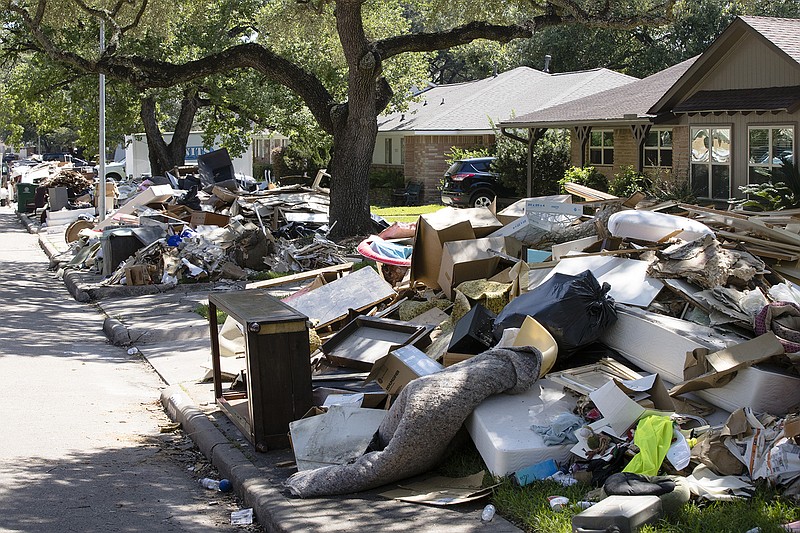I strongly believe one of the best traits parents can teach their children is compassion. Without it, the world can be very cruel.
In recent weeks, in the darkness of the horrific effects of hurricanes Harvey, Irma and now Maria, as well as the deadly earthquakes in Mexico, we've seen the beauty of compassion unfold right before our eyes.
J.J. Watt, for example, a young professional football player in Houston, Texas, wanted to raise $200,000 for hurricane relief. As of last week, the amount raised was more than $37 million.
It's evidence that compassion is more important than greed.
We saw people making a human chain to save an elderly person from drowning.
We saw miraculous helicopter rescues from our military.
We saw people open their homes for evacuees.
We even saw a news reporter put down his microphone during a live broadcast to help rescue a man whose truck was being swept away by flood waters.
We saw the best of mankind.
As a grandparent, I felt it important to talk to my grandchildren, Tilleigh, 10, Evie, 7, and William, 5, about the importance of compassion. Their mommy and I told them about the hurricanes and the resulting devastation. We watched TV together so that we could address their concerns.
Turns out, the children, especially the girls, asked amazingly intelligent questions, including:
Why are there so many hurricanes? What can we do to keep the ocean from getting warmer? (We have two scientists in our family. We believe in climate change.) Where do the people go when they evacuate? Where do they get food? Where do they go if their homes were destroyed?
The children and I were watching CNN one evening when a story aired about a volunteer rescue worker who took a homeowner back to his home in a flooded Houston neighborhood to help the man retrieve his young son's bicycle. My grandchildren were overjoyed when they saw the little boy get back his bike.
But we also saw the grief. We cried during the interview with the grandparents whose six family members, including their four grandchildren, drowned when their van sank in flooded waters in Houston.
It sparked a conversation about what is important in life. The children knew, from the depths of their sweet, loving little hearts, that family tops the list.
I asked them what they'd pack in a very small suitcase if we were told we had to evacuate our homes.
They all agreed they'd take a few changes of clothes, a small blanket, a book, one stuffed animal, iPads (in case there was electricity) and, last but not least, both girls said they'd take a photograph of Nannie (my mother, their great-grandmother).
Mother died three years ago, and she was very close to the children. In fact, the girls were sitting by her side when she died. The love was - and still is - so strong.
It melted my heart that the children didn't start naming off all their favorite toys they could cram in a suitcase, or even balk at the thought of ever having to evacuate in the first place (they vividly recall us hunkering down in our unfinished basement during a tornado warning a few years ago). They saw that evacuations and catastrophes are real, and they gave it deep thought. During that process, they thought of their great-grandmother.
I couldn't be more proud.
Contact Karen Nazor Hill at khill@timesfreepress.com.

